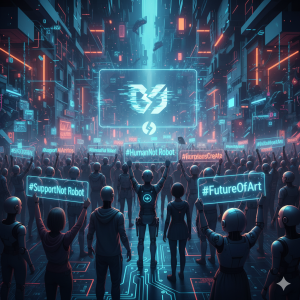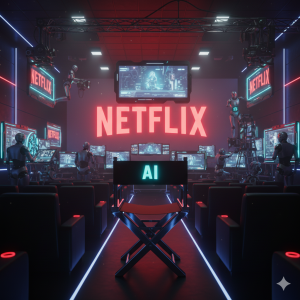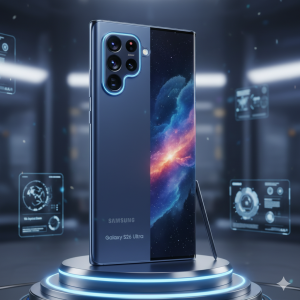🧩 AI Won’t Just Change Jobs — It’ll Redraw Career Paths by 2030
CEOs from Amazon, IBM, Salesforce, and JPMorgan are warning that AI won’t just automate work — it’ll redefine what “career” even means in the next decade.
🌍 A Wake-Up Call from the World’s Most Powerful CEOs
When I first read the recent roundtable insights shared by leaders from Amazon, IBM, Salesforce, and JPMorgan, one line hit me hard — “AI won’t just take jobs; it will reinvent them.” These aren’t tech bloggers making bold claims; they’re executives running trillion-dollar industries, already seeing how automation is rewriting job descriptions daily.
For context, Amazon’s Andy Jassy admitted that internal teams are now using AI to automate customer support, logistics forecasting, and even parts of software testing. IBM’s HR division has quietly replaced some human recruiters with AI models that scan résumés faster and more objectively. Meanwhile, Marc Benioff at Salesforce predicted a near future where every manager will oversee both humans and AI “agents.”
At JPMorgan Chase, AI has already started analyzing trading patterns and credit models — once handled by dozens of analysts. What used to take hours now happens in seconds. It’s not science fiction anymore; it’s Tuesday morning in 2025.
💡 Adapt or Be Automated: What Companies Are Saying
Across industries, CEOs are repeating the same advice: adapt or be left behind. In simple terms, this decade belongs to those who learn how to work with AI — not compete against it.
- Amazon’s Andy Jassy said AI could soon handle entire layers of customer service, coding, and analytics. Developers who understand prompt engineering or model fine-tuning will become the new architects of this change.
- IBM has already shifted dozens of HR functions — from candidate screening to performance analysis — to Watson-powered tools. Humans now supervise AI decisions rather than make them manually.
- Salesforce’s Marc Benioff believes managers of the future will oversee hybrid teams of people and “digital co-workers.”
- JPMorgan Chase predicts that financial analysis and data-driven decision making will be 70% AI-assisted within three years.

📊 The Shift Isn’t About Job Loss — It’s About Job Evolution
There’s a misconception that AI’s rise automatically means layoffs. That’s partly true, but the real story is deeper. AI is reshaping roles, not erasing them entirely. Take marketing, for example — in 2020, marketers used manual data tracking. In 2025, Pakistani freelancers use ChatGPT and Canva’s Magic Studio to create complete ad campaigns in hours. They didn’t lose their jobs; their tools evolved.
According to a PwC global report, industries exposed to AI are witnessing a four-fold productivity boost. Employees skilled in AI or automation now earn up to 56% higher salaries than their peers. Instead of replacing workers, AI is rewarding those who can integrate it intelligently into their workflow.
🚀 Real-World Examples of How Careers Are Changing
When I spoke to a Lahore-based data analyst recently, he shared something fascinating: “I used to spend hours cleaning and sorting data manually. Now I use an AI pipeline that does it in minutes, but my role has shifted. I interpret insights instead of wrangling spreadsheets.” That story sums up what’s happening globally.
- Teachers are learning to use AI-generated lesson planners and virtual whiteboards to personalize education.
- Journalists now rely on AI for initial research and SEO optimization but focus more on storytelling and investigative depth.
- Healthcare professionals use AI diagnostics to identify patterns doctors may miss — improving accuracy, not removing humans.
In short, AI is redefining the “value” of human work. What’s mechanical will be automated; what’s creative, empathetic, or judgment-based will thrive.
🧠 The Rise of Hybrid Jobs
Experts call the next wave of work “hybrid careers” — where every job involves both human and machine collaboration. Think of it as your own digital teammate. For example:
- AI Project Managers will oversee how machine learning systems are trained and deployed.
- Prompt Engineers will specialize in guiding AI models like ChatGPT to deliver high-quality results.
- AI Ethicists will ensure companies use data responsibly and without bias.
In Pakistan, companies like Systems Limited and Techlogix have already begun integrating “AI supervisors” into their software teams — employees who understand both code and the logic behind the AI model they’re working with. That’s how fast the change is moving.
💼 Preparing Yourself for the AI Era
Here’s how you can future-proof your career before 2030:
- Upskill Now: Focus on AI literacy, automation tools, and data interpretation. Platforms like Coursera, Google’s AI Essentials, and Pakistan’s DigiSkills now offer beginner-friendly AI programs.
- Adopt AI at Work: Don’t fear it. Use AI tools like Notion AI, Jasper, or ChatGPT for everyday efficiency — summaries, email drafts, and brainstorming.
- Be Human: Ironically, empathy, communication, and creativity are becoming premium skills. AI can’t replicate emotional intelligence (yet).
📈 The Numbers Tell a Story
- 8 out of 10 companies globally list AI as their top strategic priority.
- 97 million workers are projected to transition into AI-related roles by 2025.
- PwC’s study estimates AI could add $15.7 trillion to the global economy by 2030.
That’s not a dystopia — that’s opportunity. The next generation of careers won’t be built on coding alone; they’ll thrive on collaboration between people and intelligent systems.

🧩 How Pakistan Can Lead the AI Shift
While Silicon Valley dominates the headlines, South Asia — especially Pakistan — is quietly becoming a major player in remote AI work. Platforms like Upwork and Fiverr report that “AI content generation” and “AI data labeling” are among the most in-demand skills from Pakistani freelancers.
Universities like NUST and FAST have launched AI-focused programs, while startups in Karachi and Lahore are using open-source models to develop Urdu-friendly chatbots for banking and education. If that momentum continues, Pakistan could emerge as the AI-services hub of the region by 2030.
🔮 Final Thoughts — The Future Belongs to the Adaptive
AI isn’t a storm to survive — it’s a wind to sail with. As CEOs worldwide keep saying, this revolution won’t wait for anyone. Whether you’re a designer, teacher, or finance professional, learning how to collaborate with AI will be as essential as knowing how to use the internet.
In ten years, we might not even talk about “AI jobs.” All jobs will be AI-influenced — and the winners will be those who saw it coming early.
“Use AI — or get used by it.”
(And that’s not a threat. It’s an opportunity.)










